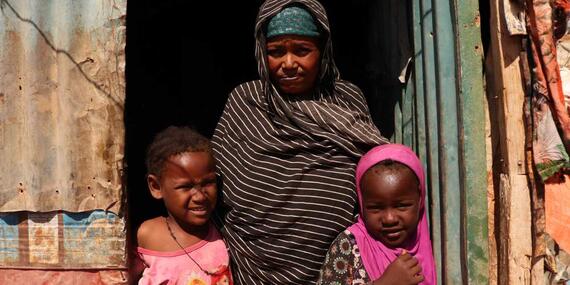UN emergency fund releases record $250 million to reach world’s most vulnerable people, avert famine

NEW YORK, 18 February 2023 – With a record-high number of people needing humanitarian aid around the world, UN Secretary-General António Guterres today announced the largest allocation ever of US$250 million from the United Nations global emergency fund to help the most vulnerable people in some of the most forgotten crises and stave off famine.
“So often, longstanding development issues can combine with climate chaos, economic shocks and violent conflicts, spinning into a whirlwind of humanitarian disaster,” said the Secretary-General. “Around the world today, 339 million people are in need of humanitarian aid – an increase of more than 25 per cent since last year.”
In 2022, the UN and its partners reached nearly 160 million people, but the surge in humanitarian needs is fast outpacing the ability to respond. This year, to meet the basic needs of 240 million people, nearly $54 billion is required, but it is anticipated that less than half that amount will be raised.
The newly announced record $250 million allocation from the Central Emergency Response Fund (CERF) will help people in 19 countries. This includes 8 countries – Afghanistan, Burkina Faso, Haiti, Mali, Nigeria, Somalia, South Sudan and Yemen – that are home to more than 20 million people just one step away from famine.
In addition, the funds will bolster the humanitarian response in underfunded crises – in Chad, Colombia, the Democratic Republic of the Congo, Eritrea, Ethiopia, Honduras, Kenya, Lebanon, Madagascar, Pakistan and Sudan – to combat food insecurity and address the impacts of climate change and protracted crises.
“This money will enable early action, getting ahead of crises in the making, including famines,” said the Under-Secretary-General for Humanitarian Affairs and Emergency Relief Coordinator, Martin Griffiths. “I thank all donors who have contributed to CERF. You have made this massive allocation possible.”
While this new infusion of funds will jump-start humanitarian operations in 19 emergency situations, the UN has stressed the need for earlier and larger amounts of funding, and it is appealing to donors to replenish CERF so that resources can reach ever greater numbers of people in need. The UN has also underscored the importance of addressing root causes driving humanitarian needs, as well as increasing investment in development and building resilience in fragile countries.
